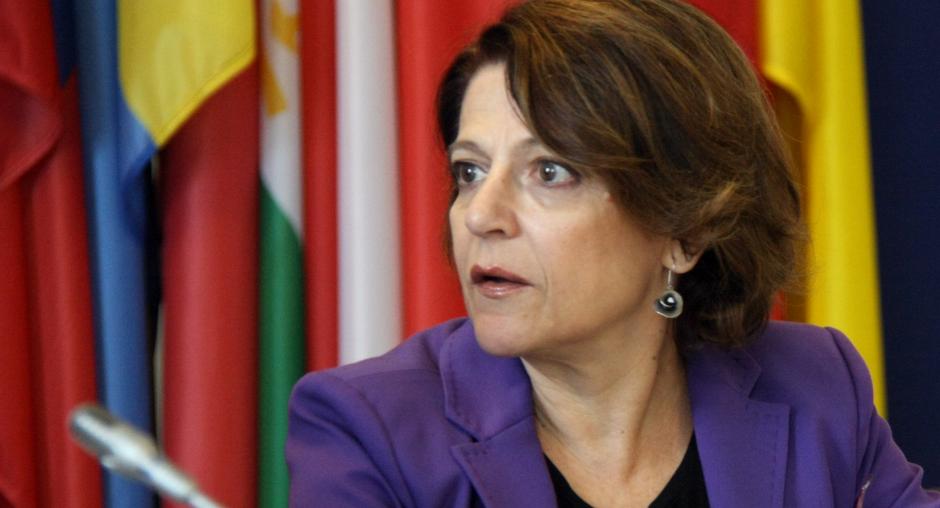OSCE report links human trafficking and torture

The OSCE Special Representative and Co-ordinator for Combating Trafficking in Human Beings, Maria Grazia Giammarinaro, on 25 June 2013 launched a ground-breaking research paper that connects human trafficking and torture and other forms of ill-treatment.
“This research shows the extent to which trafficking in human beings is associated with violence and human suffering, such that we can compare it to and even consider it to be a form of torture,” Giammarinaro said during the 13th Alliance against Trafficking in Persons conference in Vienna. “It also suggests new criteria to enhance political will against both trafficking and torture, and new means to provide victims with additional protection such as reparation, which includes not only compensation but also rehabilitation.”
The Special Representative partnered with the Ludwig Boltzmann Institute of Human Rights (BIM) and the Helen Bamber Foundation to produce Trafficking in Human Beings Amounting to Torture and other Forms of Ill-treatment, the fifth in an ongoing Occasional Paper series produced by her office.
BIM co-director, the former UN Special Rapporteur on Torture and other Cruel, Inhuman or Degrading Treatment, Manfred Nowak, said: “Depending on each individual case, trafficking and re-trafficking can amount to torture. For victims of trafficking, unconditional residence is essential for having access to reparation including compensation and rehabilitation.”
“Torture consists of stripping away a person's dignity and identity, asserting total power and control over mind and body, inflicting pain, and causing despair,” said Bamber, whose foundation offers specialist clinical care to survivors of human rights violations including state torture and human trafficking. “Our clinicians work to address the psychological consequences of this experience in victims of human trafficking.”
The United Nations has declared 26 June as the International Day in Support of Victims of Torture.
